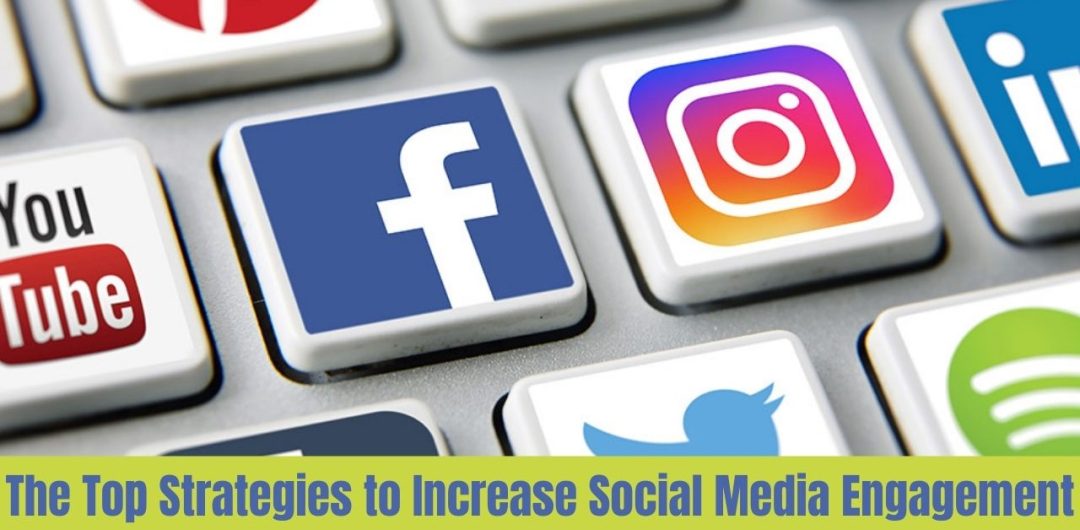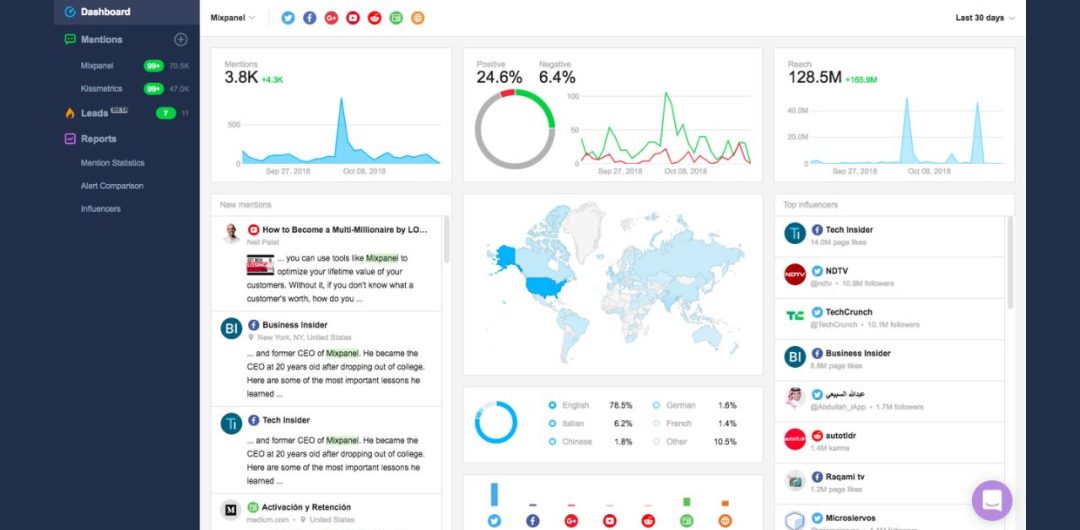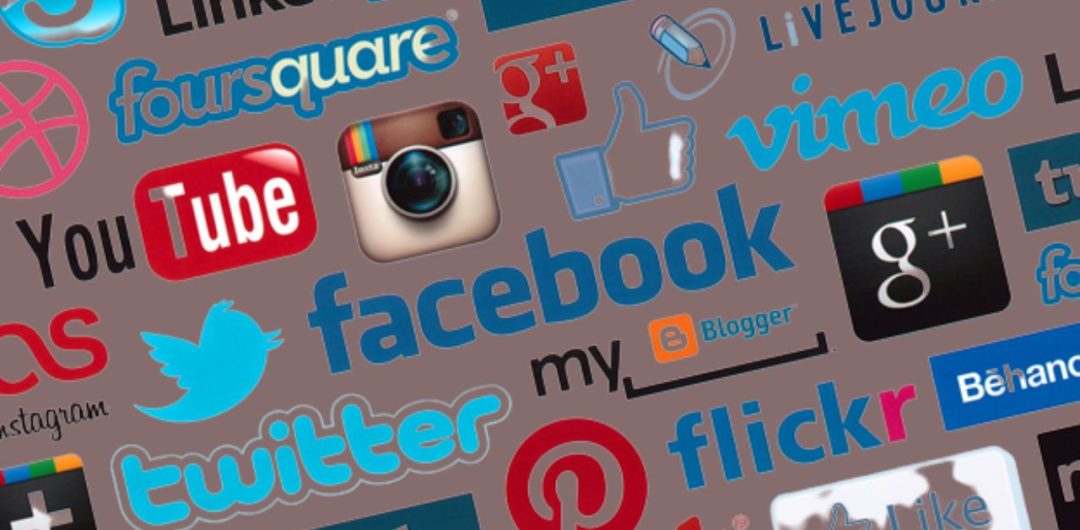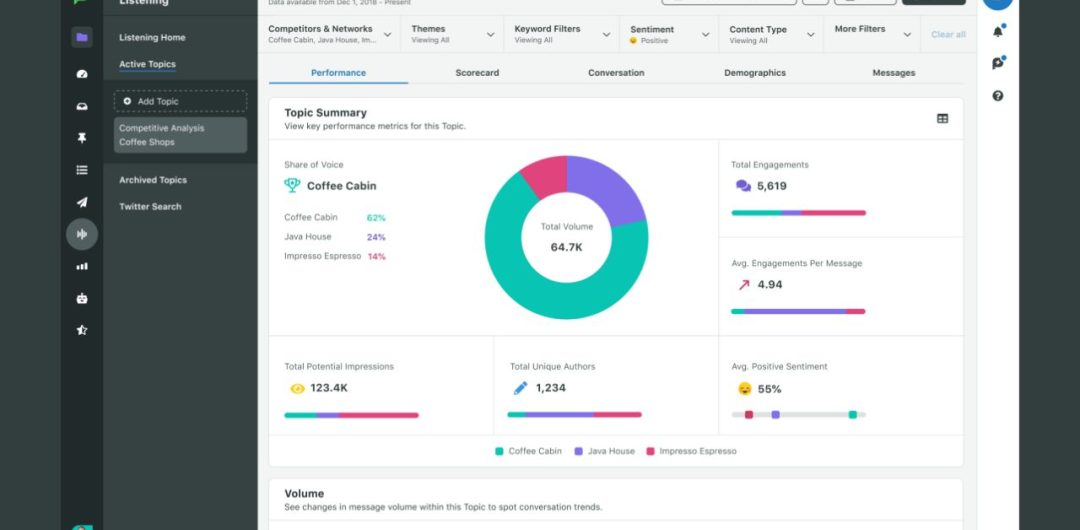
Looking to take your social media game to the next level? Our comprehensive guide to social media management covers everything from content creation to analytics, helping you build your brand and connect with your audience like never before. Don’t miss out on this essential resource for businesses and individuals alike!
Social media has become an indispensable part of our daily lives. We spend a significant amount of our time scrolling through various social media platforms. Businesses, too, have realized the potential of social media and are increasingly using it as a means of connecting with their audience. However, merely having a social media presence is not enough. For a business to thrive on social media, it needs to have high engagement rates.
Social media engagement is the measurement of the level of interaction between a user and a social media platform. It is an essential metric for businesses to track as it reflects the level of interest their audience has in their content. Higher engagement rates indicate that a brand is resonating with its audience and can lead to increased brand awareness, website traffic, and ultimately, sales.
Likes and comments used to be the primary indicators of social media engagement, but things have changed. Today, shares have become the holy grail of social media engagement. Shares indicate that a user has found the content valuable enough to share with their friends and followers, making it visible to a wider audience.
With so much content competing for users’ attention, it can be challenging to increase social media engagement. In this blog, we will discuss some of the top strategies businesses can use to boost their social media engagement, including creating shareable content, utilizing social media advertising, leveraging user-generated content, and engaging with their audience.
By implementing these strategies, businesses can increase their social media engagement and ultimately, achieve their marketing goals. So, whether you’re a small business owner or a social media marketer, keep reading to learn how you can take your social media engagement from likes to shares.
What is Social Media Engagement?
Social media engagement refers to the level of interaction that users have with a social media platform or specific content posted on it. This interaction can take many forms, including likes, shares, comments, retweets, and mentions.
It measures the level of interest and involvement of users with a brand or its content, indicating how successful the brand is in connecting with its audience. Higher engagement rates often translate into increased visibility, brand awareness, and potentially, higher revenue for businesses. It is an essential metric for businesses to track and optimize, as it can impact their overall social media success.
What are Social Media Engagement Tools?
Social media engagement tools are software applications or services that help businesses and social media marketers improve their social media engagement rates. These tools typically offer various features and functionalities to help users create, manage, and optimize their social media campaigns. Some common social media engagement tools include:
1. Social Media Monitoring Tools
These tools help users track brand mentions, monitor social media conversations, and analyze sentiment to gauge how well their content is performing on social media.

Social media monitoring tools are software applications that allow businesses and individuals to track, monitor, and analyze social media conversations and mentions related to their brand or industry. These tools enable users to stay on top of their social media presence by keeping track of conversations, mentions, and comments in real-time. Social media monitoring tools can be used to:
- Monitor brand mentions: Social media monitoring tools help businesses keep track of what people are saying about their brand on social media. They allow users to monitor mentions, tags, and hashtags related to their brand or industry.
- Track competitor activity: Social media monitoring tools enable businesses to keep track of their competitor’s social media activity, including their content strategy, engagement rates, and customer feedback.
- Identify trends: Social media monitoring tools can help businesses identify emerging trends and topics related to their industry, allowing them to stay ahead of the curve and create relevant content.
- Measure sentiment: Social media monitoring tools can analyze the sentiment of social media conversations related to a brand or industry, providing insights into how customers feel about a product or service.
- Improve customer service: Social media monitoring tools can help businesses respond to customer inquiries and complaints in real time, improving customer service and overall brand reputation.
2. Social Media Scheduling Tools
These tools allow users to schedule posts in advance, ensuring their content is posted at optimal times for maximum engagement.

Social media scheduling tools are software applications that allow businesses and individuals to schedule social media posts in advance. These tools help users save time by allowing them to plan and schedule content in advance, ensuring that their social media accounts remain active even when they are not actively posting. Social media scheduling tools typically offer the following features:
- Multi-platform posting: Social media scheduling tools enable users to schedule posts across multiple social media platforms, including Facebook, Twitter, Instagram, LinkedIn, and more.
- Content calendar: Social media scheduling tools provide users with a visual content calendar, allowing them to plan and organize their content strategy in advance.
- Post scheduling: Users can set the date and time for their social media posts to be published, ensuring their content is posted at optimal times for maximum engagement.
- Drafts and approvals: Social media scheduling tools enable teams to collaborate on social media content by allowing team members to create and edit drafts, and obtain approval before publishing.
- Analytics and insights: Social media scheduling tools provide users with detailed analytics and insights into their social media performance, including engagement rates, follower growth, and content reach.
3. Social Media Analytics Tools
These tools provide users with detailed data and insights into their social media performance, including engagement rates, follower growth, and content reach.
Social media analytics tools are software applications that enable businesses and individuals to track, measure, and analyze their social media performance. These tools provide users with valuable insights and data to help them optimize their social media strategy, improve engagement rates, and drive business growth. Social media analytics tools typically offer the following features:
- Performance metrics: Social media analytics tools track key performance metrics such as engagement rates, follower growth, and reach, providing users with a clear understanding of how their social media efforts are impacting their business.
- Content analysis: Social media analytics tools analyze the performance of individual posts, identifying which types of content are most effective at driving engagement and reach.
- Audience insights: Social media analytics tools provide users with detailed audience insights, including demographic data, geographic location, and interests, enabling businesses to create more targeted content and campaigns.
- Competitor analysis: Social media analytics tools can track and analyze the social media performance of competitors, providing valuable insights into their strategies and tactics.
- Reporting and visualization: Social media analytics tools enable users to generate reports and visualizations of their social media data, making it easier to communicate their performance to stakeholders and team members.
By using social media analytics tools, businesses and individuals can gain a deeper understanding of their social media performance, identify areas for improvement, and make data-driven decisions to improve their social media strategy and ultimately drive business growth.
4. Social Media Listening Tools
These tools help businesses monitor and respond to customer feedback and sentiment on social media, allowing them to address customer concerns and improve their overall social media reputation.

Social media listening tools are software applications that enable businesses and individuals to monitor and analyze social media conversations related to their brand or industry. These tools allow users to track mentions, comments, and conversations related to their brand or industry in real-time, providing valuable insights into customer sentiment and brand reputation. Social media listening tools typically offer the following features:
- Brand monitoring: Social media listening tools enable businesses to monitor brand mentions, hashtags, and keywords related to their brand or industry, providing real-time alerts and notifications.
- Sentiment analysis: Social media listening tools can analyze the sentiment of social media conversations related to a brand or industry, providing insights into how customers feel about a product or service.
- Competitor analysis: Social media listening tools can track and analyze the social media performance of competitors, providing valuable insights into their strategies and tactics.
- Trend analysis: Social media listening tools can help businesses identify emerging trends and topics related to their industry, allowing them to stay ahead of the curve and create relevant content.
- Influencer identification: Social media listening tools can identify influencers and thought leaders within a particular industry, allowing businesses to target their marketing efforts more effectively.
5. Hashtag Tracking Tools
These tools enable businesses to track and analyze the performance of specific hashtags, allowing them to identify trends and optimize their content strategy accordingly.
Using social media engagement tools can help businesses and marketers streamline their social media efforts, save time, and ultimately, boost their engagement rates.
Hashtag tracking tools are software applications that allow businesses and individuals to track and analyze the performance of specific hashtags on social media. Hashtags are used to categorize content and make it more discoverable on social media, and tracking their performance can provide valuable insights into audience engagement and content effectiveness. Hashtag tracking tools typically offer the following features:
- Hashtag monitoring: Hashtag tracking tools allow users to monitor the performance of specific hashtags across multiple social media platforms, providing real-time data and analytics.
- Performance metrics: Hashtag tracking tools provide users with key performance metrics such as reach, engagement, and impressions, allowing them to measure the effectiveness of their hashtag strategy.
- Competitor analysis: Hashtag tracking tools can track and analyze the performance of hashtags used by competitors, providing insights into their social media strategy and tactics.
- Trend analysis: Hashtag tracking tools can help businesses identify emerging trends and topics related to their industry, allowing them to create more relevant and effective content.
- Reporting and visualization: Hashtag tracking tools enable users to generate reports and visualizations of their hashtag data, making it easier to communicate their performance to stakeholders and team members.
Run Contests and Giveaways
Running contests and giveaways is a popular strategy to increase social media engagement. Contests and giveaways can help businesses to attract new followers, increase brand awareness, and foster a sense of community among their audience. Here are some tips for running successful contests and giveaways on social media:
- Choose a relevant prize: The prize should be relevant to your brand and of interest to your target audience. This can help to attract followers who are genuinely interested in your products or services.
- Define clear rules and guidelines: Clearly define the rules and guidelines for the contest or giveaway, including the eligibility criteria, entry requirements, and deadline.
- Promote the contest or giveaway: Promote the contest or giveaway on your social media channels, email newsletter, and website to attract participants.
- Use hashtags: Use hashtags to promote the contest or giveaway and make it more discoverable on social media.
- Encourage user-generated content: Encourage participants to share user-generated content related to your brand or products as part of the contest or giveaway.
- Choose a winner fairly: Choose a winner fairly and announce the results publicly to maintain transparency and build trust with your audience.
- Follow up with participants: Follow up with participants after the contest or giveaway to thank them for their participation and promote future engagement opportunities.
Tips for Increasing Your Social Media Engagement
Increasing social media engagement is crucial for businesses and individuals to build brand awareness, attract new followers, and foster a sense of community among their audience. Here are some tips for increasing social media engagement:
- Post regularly and at the right time: Posting regularly and at the right time can help to increase visibility and engagement. Use social media analytics tools to identify the best times to post for your audience.
- Create high-quality content: Create high-quality, visually appealing content that is relevant to your target audience. This can help to increase engagement rates and attract new followers.
- Use hashtags: Use relevant hashtags to make your content more discoverable on social media and increase engagement rates.
- Encourage user-generated content: Encourage your audience to share user-generated content related to your brand or products, and share and comment on their content to foster a sense of community.
- Run contests and giveaways: Running contests and giveaways can help to increase engagement rates and attract new followers.
- Respond to comments and messages: Respond to comments and messages on time to show your audience that you value their input and feedback.
- Collaborate with influencers: Collaborating with influencers can help to increase visibility and credibility, and attract new followers to your social media channels.
- Use social media analytics tools: Use social media analytics tools to track engagement rates, identify areas for improvement, and make data-driven decisions to optimize your social media strategy.
Conclusion
Social media engagement is crucial for businesses and individuals to build brand awareness, attract new followers, and foster a sense of community among their audience. By implementing the top strategies to increase social media engagement, businesses and individuals can optimize their social media strategy and ultimately drive business growth.
From monitoring tools to scheduling tools, analytics tools to listening tools, and hashtag tracking tools to running contests and giveaways, there are numerous strategies that businesses and individuals can use to increase social media engagement.
By creating high-quality content, using relevant hashtags, encouraging user-generated content, responding to comments and messages, collaborating with influencers, and using social media analytics tools, businesses, and individuals can increase engagement rates, attract new followers, and ultimately achieve their social media goals.
In today’s fast-paced digital world, social media has become a powerful tool for businesses and individuals to connect with their audience, build brand awareness, and drive business growth. By staying up-to-date with the latest social media trends and best practices, businesses and individuals can leverage the power of social media to achieve their goals and succeed in the digital age.
So, whether you’re a small business owner, a social media influencer, or a marketing professional, remember to keep these top strategies in mind to increase social media engagement and achieve success on social media platforms.
